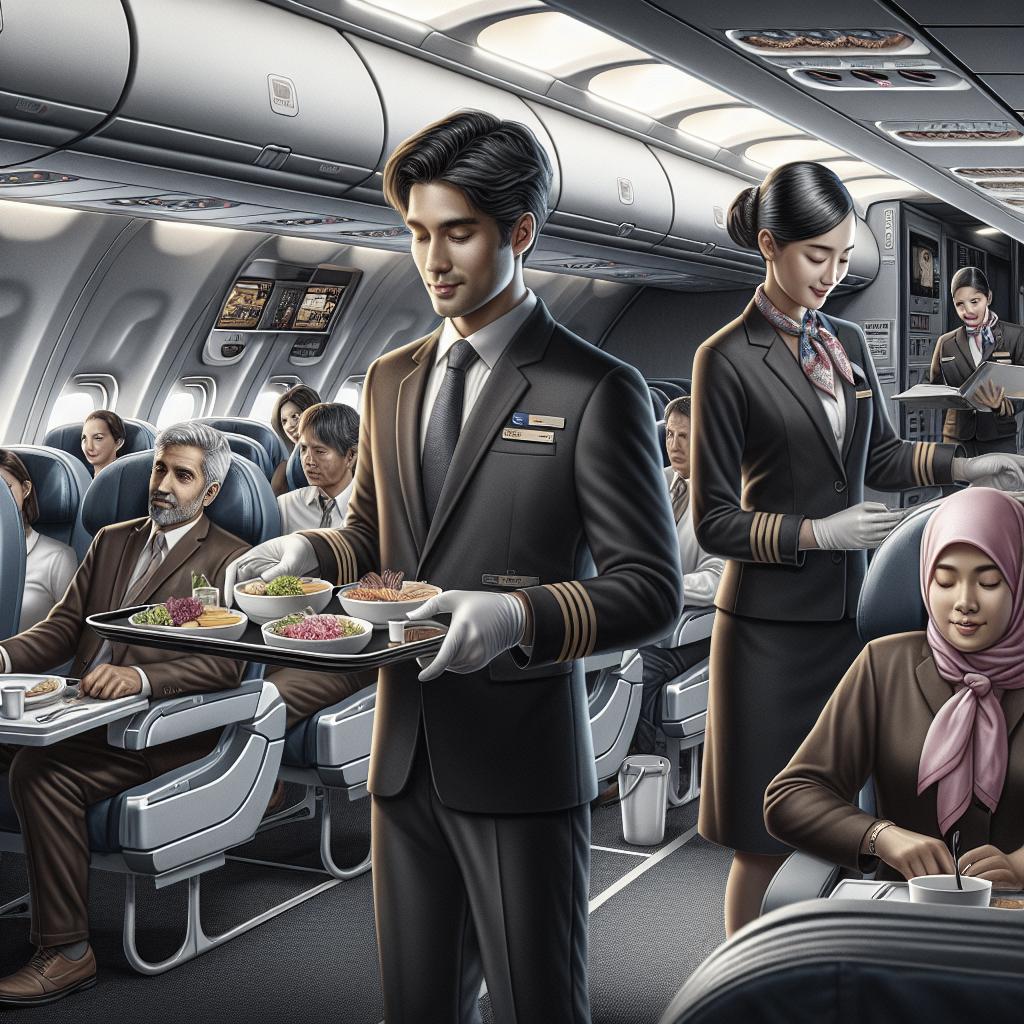The Role of a Flight Attendant
Flight attendants play a vital role in ensuring the safety, security, and comfort of passengers flying across the globe. They are the faces of the airlines, responsible for keeping order in the cabin, conducting safety protocols, and providing exemplary customer service. This article provides a comprehensive overview of what it means to be a flight attendant, including their duties, suitability for the role, and work environment. Whether you are considering this as a career or simply want a deeper understanding, this breakdown offers insights into the daily lives and challenges faced by flight attendants.
What is a Flight Attendant?
A flight attendant, also known as a cabin crew member, is a professional trained in airline safety and customer service, responsible for passengers’ well-being during flights. The role originated in the early 20th century when airlines recognized the need for onboard personnel to assist with passenger needs. Over time, the responsibilities of flight attendants have evolved to encompass safety and security duties, making them integral to the aviation industry.
Flight attendants ensure compliance with aviation regulations and manage emergency situations should they arise. Their work goes beyond serving meals and refreshments; they conduct safety demonstrations, check equipment, and facilitate emergency procedures. The position requires excellent communication skills, adaptability, and the ability to remain calm under pressure.
In this article:
This article will delve into the multifaceted role of flight attendants by examining their day-to-day responsibilities and the characteristics suited for this career. We’ll explore their dynamic work environment and weigh the pros and cons of choosing this profession. By gathering insights based on thorough research and industry standards, you’ll gain a comprehensive understanding of what it takes to soar in this unique career path.
What does a Flight Attendant do?
Flight attendants are responsible for a variety of tasks that ensure passengers have a safe and pleasant flight experience. Before takeoff, they greet passengers and assist with finding seats, stowing carry-on luggage, and explaining safety protocols. They conduct safety demonstrations, ensuring compliance with regulations like seatbelt use and oxygen mask operation. A crucial part of their job is making sure that emergency equipment is in working order, and they are trained to deal with unexpected situations such as medical emergencies or turbulence.
Once in the air, flight attendants focus on customer service, offering meals, beverages, and other amenities. They monitor the cabin environment, assist passengers with any needs, and manage any unforeseeable events. Flight attendants are often the first point of contact, addressing concerns and maintaining order throughout the flight. Their ability to mediate conflicts and provide comfort is a testament to their training and adaptability.
Are you suited to be a flight attendant?
Not everyone is cut out for a career as a flight attendant. The role demands a unique blend of personality traits, skills, and physical conditions. Successful flight attendants are typically outgoing, empathetic, and possess strong communication skills. They must be able to engage with individuals from diverse backgrounds while maintaining a professional demeanor.
Physical fitness is also important since the job involves long hours on one’s feet, handling heavy items, and sometimes working in challenging conditions. The lifestyle is equally demanding, requiring adaptability to irregular schedules, frequent travel, and time away from home. Aspiring flight attendants should assess their ability to maintain energy, enthusiasm, and composure, especially during long-haul flights or emergency situations.
What is the workplace of a Flight Attendant like?
The working environment of a flight attendant is unique and can be both exciting and challenging. The cabin of an airplane is their primary workplace, which varies from the spacious luxury of wide-bodied jets to the constrained quarters of smaller aircraft. A typical flight may range from a short domestic trip to an extended international journey, influencing the duration and pressure of their work.
In addition to the cabin, flight attendants spend significant time in airports, attending pre-flight briefings, coordinating with the crew, and ensuring all documentation is in order. They often experience varying time zones and climates, adding a layer of complexity to their schedules. While this offers an opportunity to explore new locations, it requires significant personal adaptability and organization.
Pros and Cons of Being a Flight Attendant
One of the primary advantages of becoming a flight attendant is the chance to travel extensively and experience new cultures. The profession offers the opportunity to meet diverse people and offers competitive benefits and travel perks that are unique to the industry. Additionally, flight attendants often enjoy flexibility in work shifts and schedules.
However, the job is not without its downsides. The lifestyle can be tough, with irregular hours and extensive time away from home, leading to personal sacrifices. The role is physically demanding, necessitating endurance and resilience. Flight attendants must also manage the stress of ensuring passenger safety and adherence to strict airline policies, which can be challenging in high-pressure situations.
Next Steps
| Section | Summary |
|---|---|
| What is a Flight Attendant? | Flight attendants are crucial airline staff focused on passenger safety and service, with evolving responsibilities from early aviation history. |
| What does a Flight Attendant do? | They manage pre-flight preparations, conduct safety demonstrations, serve passengers, and handle in-flight emergencies. |
| Are you suited to be a flight attendant? | This role suits individuals with excellent communication skills, empathy, physical fitness, and adaptability to irregular work patterns. |
| What is the workplace of a Flight Attendant like? | Their workplace varies from plane cabins to international airports, involving varied hours and international travel. |
| Pros and Cons of Being a Flight Attendant | The role offers travel opportunities and flexibility, but also requires handling demanding physical and schedule challenges. |


